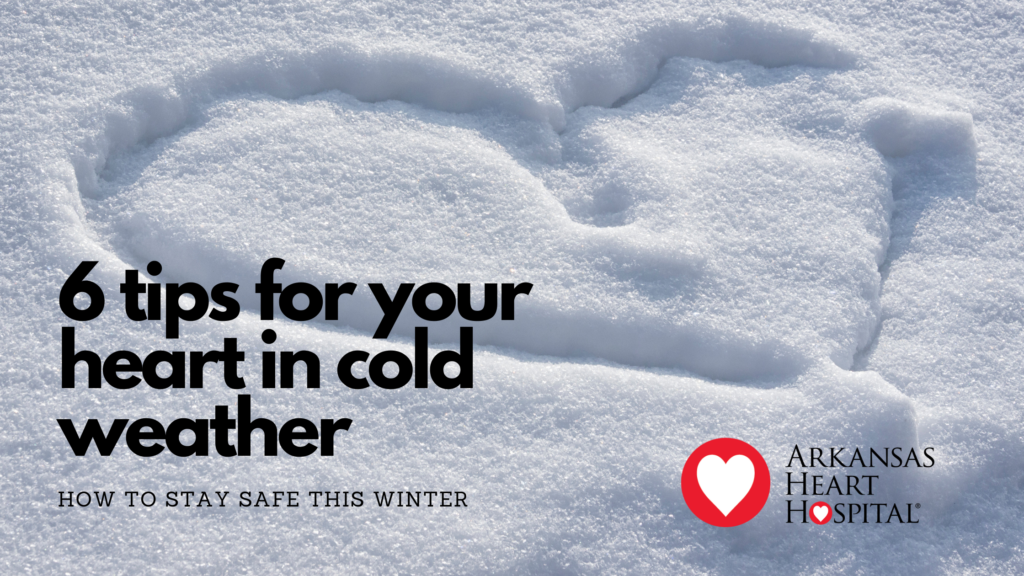
As temperatures outside begin to drop, you might be focused on cozy sweaters, snowball fights and warm drinks, but it’s also important to consider how cold weather can affect your heart. Frigid temperatures place an extra strain on your cardiovascular system, and for those with heart conditions, the winter months can pose additional risks.
Cold weather causes blood vessels to constrict, which raises blood pressure and can make the heart work harder to circulate blood. This added strain may increase the risk of heart attacks and other cardiovascular issues, particularly in those with existing heart conditions. Winter conditions can also mean sudden, intense activities—like shoveling snow—which can be risky for anyone with high blood pressure or heart disease.
Here’s what you need to know to stay heart-healthy during the chilly season.
- Dress Warmly and Layer Up
Keeping warm is essential to reducing strain on your heart. Layer up with warm clothing, including gloves, a hat and a scarf. Covering your mouth with a scarf can also help warm the air before it enters your lungs, making breathing easier and less taxing on your cardiovascular system.Tip: Choose moisture-wicking layers to help regulate body temperature and prevent sweating, which can make you colder when outside for extended periods.
- Avoid Sudden, Strenuous Activities
Tasks like shoveling snow or carrying heavy objects can cause a sudden increase in blood pressure and heart rate, which could be dangerous in cold weather. If you need to tackle these chores, go slowly and take frequent breaks. Consider asking for help or using a snow blower instead of shoveling by hand.Quick Tip: Warm up indoors with light stretching to ease your body into physical activity.
- Stay Active Safely
While outdoor exercise in winter can be refreshing, be mindful of your limits and take precautions. Aim to keep your activity moderate and avoid overexertion. Indoor activities, such as walking on a treadmill or doing low-impact exercises, are good alternatives when temperatures dip too low.Pro Tip: If you’re walking outside, wear appropriate footwear to prevent slips and falls on icy surfaces, which could strain your heart if you attempt to catch yourself.
- Manage Blood Pressure
Monitoring and managing blood pressure is especially important in winter. The cold causes your blood vessels to tighten, increasing your blood pressure. Keeping track of your blood pressure and taking your regular medications as prescribed can help you stay on top of your heart health.Reminder: Schedule regular check-ups with your healthcare provider, particularly during colder months, to ensure your heart is staying healthy.
- Limit Alcohol Intake
While a warm drink might feel comforting in cold weather, alcohol can actually make you feel colder by widening blood vessels near the skin’s surface. This causes your body to lose heat more quickly and may put additional strain on your heart. Instead, opt for hot, non-alcoholic beverages to keep warm without the added cardiovascular risks. - Know the Signs of Heart Distress
Be familiar with symptoms of heart issues, especially if you’re spending time outdoors in the cold. Signs like chest pain, dizziness, fatigue or shortness of breath should not be ignored. Cold weather can mask some of these symptoms, so stay alert and seek medical attention if needed.
At Arkansas Heart Hospital, we want you to enjoy a safe and heart-healthy winter. By dressing warmly, avoiding strenuous tasks and listening to your body, you can reduce the strain that winter weather puts on your heart. Stay warm, stay safe and keep your heart health a priority this season.